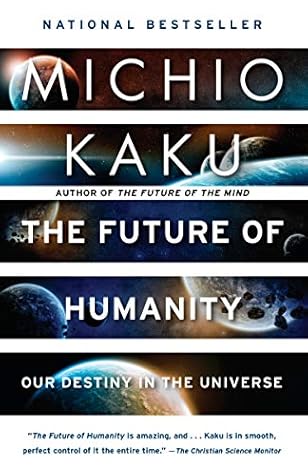More on this book
Community
Kindle Notes & Highlights
by
Michio Kaku
Read between
February 27 - April 23, 2018
The harsh reality was that it was always easier to get Congress and the taxpayer to fund astronauts into space, rather than some nameless space probe. As one congressman summed up, “No Buck Rogers, no bucks.”
Looking back at those dark days, I am sometimes reminded of what happened to the great Chinese imperial fleet in the fifteenth century. Back then, the Chinese were the undisputed leaders in science and exploration. They invented gunpowder, the compass, and the printing press. They were unparalleled in military power and technology. Meanwhile, medieval Europe was wracked by religious wars and mired in inquisitions, witch trials, and superstition, and great scientists and visionaries like Giordano Bruno and Galileo were often either burned alive or placed under house arrest, their works banned.
...more
I sometimes think about how easy it is for a nation to slip into complacency and ruin after decades of basking in the sun. Since science is the engine of prosperity, nations that turn their backs on science and technology eventually enter a downward spiral.
Terraforming Mars is a primary goal for the twenty-second century. But scientists are looking beyond Mars as well. The most exciting prospects may be the moons of the gas giants, including Europa, a moon of Jupiter, and Titan, a moon of Saturn. The moons of gas giants were once thought to be barren hunks of rock that were all alike, but they are now seen as unique wonderlands, each with its own array of geysers, oceans, canyons, and atmospheric lights. These moons are now being eyed as future habitats for human life.
Galileo believed that science and religion could coexist. He wrote that the purpose of science is to determine how the heavens go, while the purpose of religion is to determine how to go to heaven. In other words, science is about natural law, while religion is about ethics, and there is no conflict between them as long as one keeps this distinction in mind. But when the two collided during his trial, Galileo was forced to recant his theories under pain of death. His accusers reminded him that Giordano Bruno, who had been a monk, had been burned alive for making statements about cosmology far
...more
One might well wonder whether Titan can be colonized. On the one hand, it is the only moon with an appreciable atmosphere, the pressure of which is 45 percent greater than Earth’s. It is one of the few known destinations in space where we would not die soon after we took off our space suits. We would still need oxygen masks, but our blood would not boil, and we would not be crushed.
Graphene consists of a single molecular layer of carbon atoms tightly bonded to form an ultra-thin, ultra-durable sheet. It is almost transparent and weighs practically nothing, yet is the toughest material known to science—two hundred times stronger than steel and stronger even than diamonds. In principle, you could balance an elephant on a pencil and then place the pencil point on a sheet of graphene without breaking or tearing it. As a bonus, graphene also conducts electricity.
Do we have enough food to feed the people of the world as they become middle class consumers? The hundreds of millions of people in China and India who are now entering the middle class watch Western movies and want to emulate that lifestyle, with its wasteful use of resources, large consumption of meat, big houses, fixation on luxury goods, et cetera. He is concerned we may not have enough resources to feed the population as a whole, and certainly would have difficulty feeding those who want to consume a Western diet.
Of all the transitions, perhaps the most difficult is the transition from Type 0 to Type I, which we are undergoing at present. This is because a Type 0 civilization is the most uncivilized, both technologically and socially. It has risen only recently from the swamp of sectarianism, dictatorship, and religious strife, et cetera. It still has all the scars from its brutal past, which was full of inquisitions, persecutions, pogroms, and wars. Our own history books are full of horrid tales of massacres and genocide, much of it driven by superstition, ignorance, hysteria, and hatred.
There are many advantages to space solar energy. It is clean and without waste products. It can generate power twenty-four hours a day, rather than just during daylight hours. (These satellites are almost never in the shadow of the Earth, since their path takes them considerably away from the Earth’s orbit.) The solar panels have no moving parts, which vastly reduces breakdowns and repair costs. And best of all, space solar power taps into a limitless supply of free energy from the sun.


